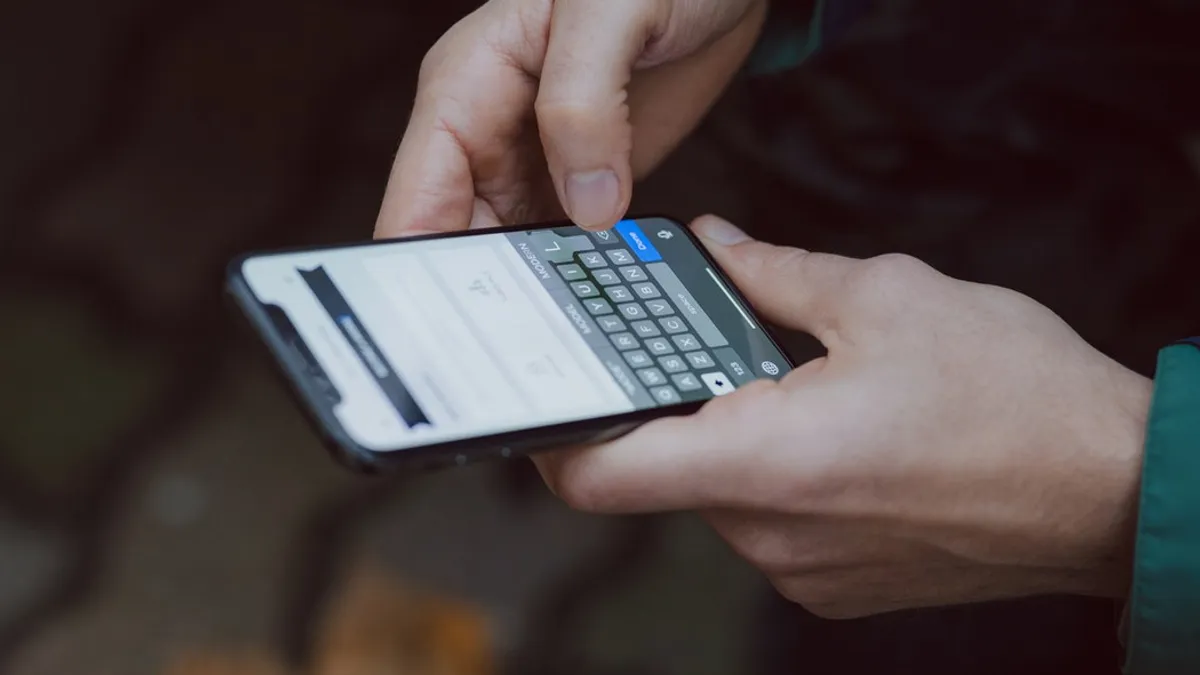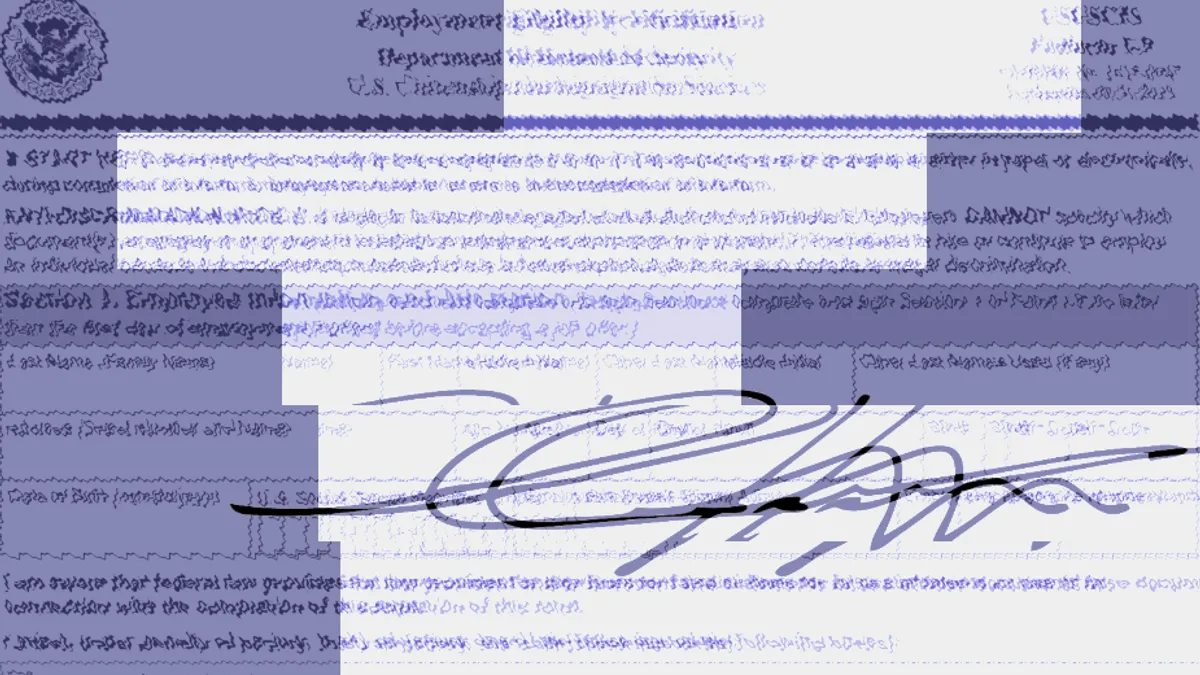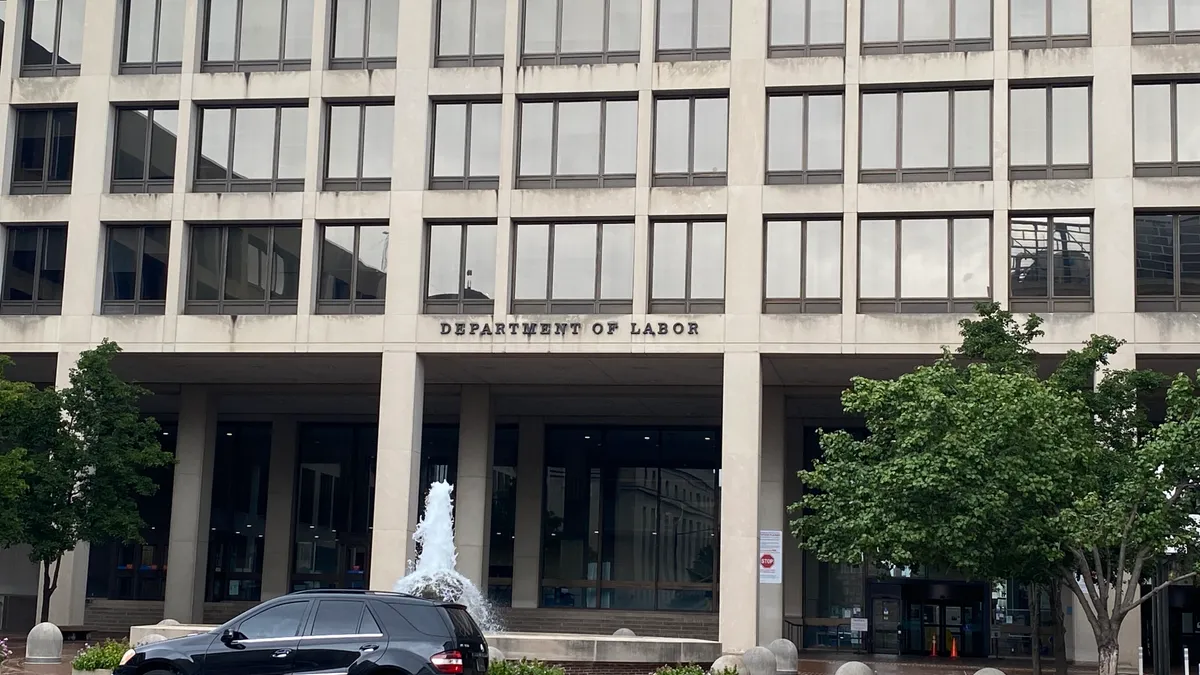Dive Brief:
- Employees are depending on employers to let them know if they've been exposed to the novel coronavirus in the workplace. A Kronos report released Aug. 5, comparing recent commissioned surveys, suggested that employees' safety concerns outweigh privacy concerns about COVID-19 contact tracing.
- The greater majority (86%) of 1,226 U.S. employees surveyed online from July 14-16 by The Harris Poll agreed that employers are obligated to inform employees if they've been exposed to a coworker who tested positive for COVID-19, according to the poll. The data also found that 78% agreed that if COVID-19 cases were rising in their region, they would not want to risk going into the workplace.
- The Workplace Intelligence survey by Savanta, Inc., based on the responses of 3,903 domestic and international employees surveyed June 22-30, found that, globally, about 89% of respondents are comfortable to varying degrees with employers using access control and/or workplace movement records for the purpose of contact tracing, Kronos reported. About half (51%) of respondents born from 1994 to 2002 are "a great deal" or "very comfortable" with this method, according to the data.
Dive Insight:
The privacy implications regarding the use of technology in contact tracing has been heavily debated during the pandemic. If employers choose to implement the method, they must also be transparent in communication, according to Gregg Gordon, vice president of industry at Kronos.
The data found in the surveys commissioned by Kronos showed that "employer-driven methods of contact tracing are not unwanted among the workforce, though education and transparent communication cannot be overlooked when introducing new policies or protocols related to organizational safety," Gordon said in a statement. In April, the company released an automated reporting tool that helps companies identify and communicate with workers who may have come into contact with a co-worker who has tested positive for COVID-19.
Employees seek transparency from their employer to help prevent the spread COVID-19 rather than be "left in the dark," Sirmara Campbell, CHRO at LaSalle Network, a national staffing and recruiting firm, told HR Dive in a previous interview. "If employers communicate effectively and employees know their organization is looking out for their health and wellbeing, they will be grateful for the transparency."
A contact tracing system may require proximity-based monitoring of employees through cell phone apps or ID badges, for example. Google and Apple announced April 10 the creation of a Bluetooth-based contact tracing platform. However, academics wrote in an opinion piece published April 27 by the Brookings Institute that the tech companies' product isn't feasible. "We have serious doubts that voluntary, anonymous contact tracing through smartphone apps — as Apple, Google, and faculty at a number of academic institutions all propose — can free Americans of the terrible choice between staying home or risking exposure," they wrote.
However, guidance from the Centers for Disease Control and Prevention (CDC) has called contact tracing "a key strategy for preventing further spread of COVID-19." Contact tracing is "a core disease control measure employed by local and state health department personnel for decades," the CDC said.














